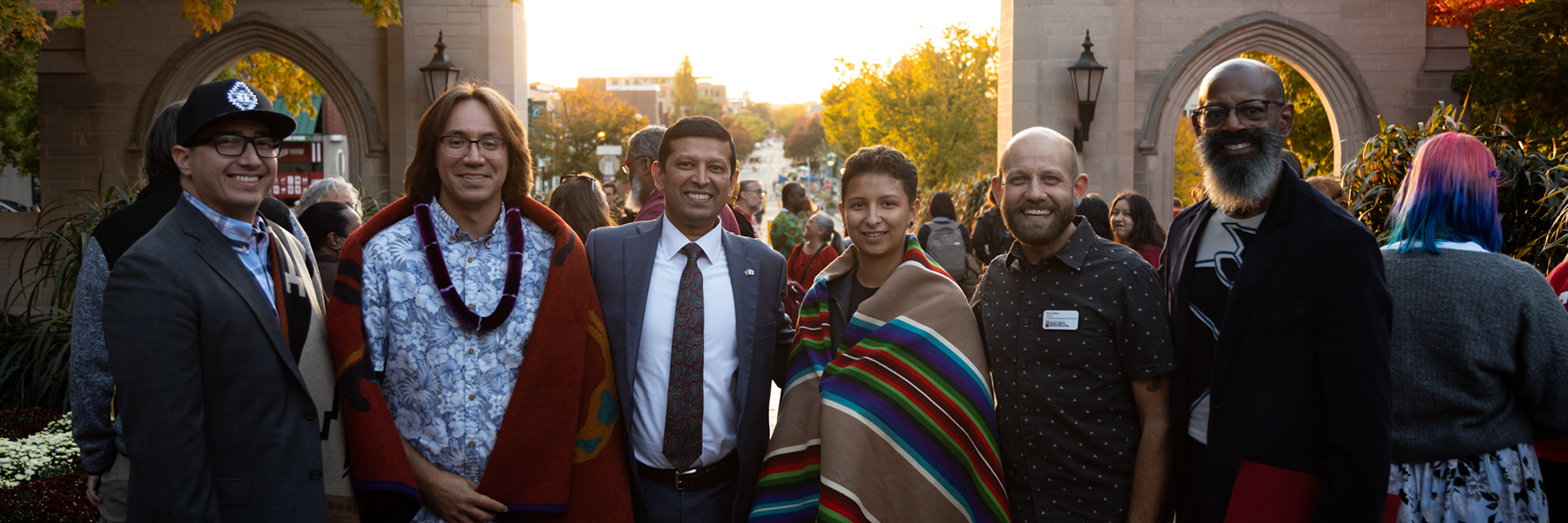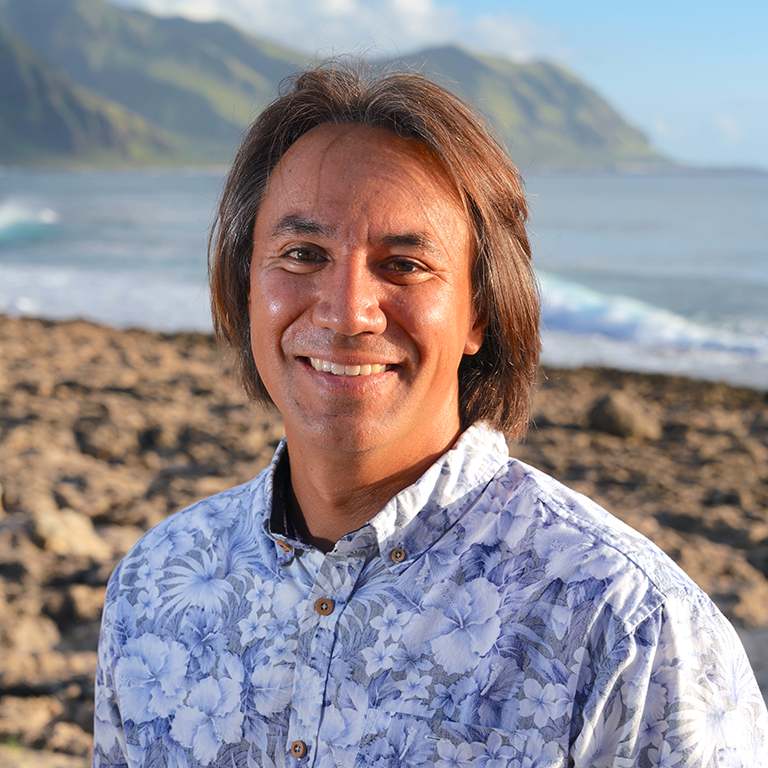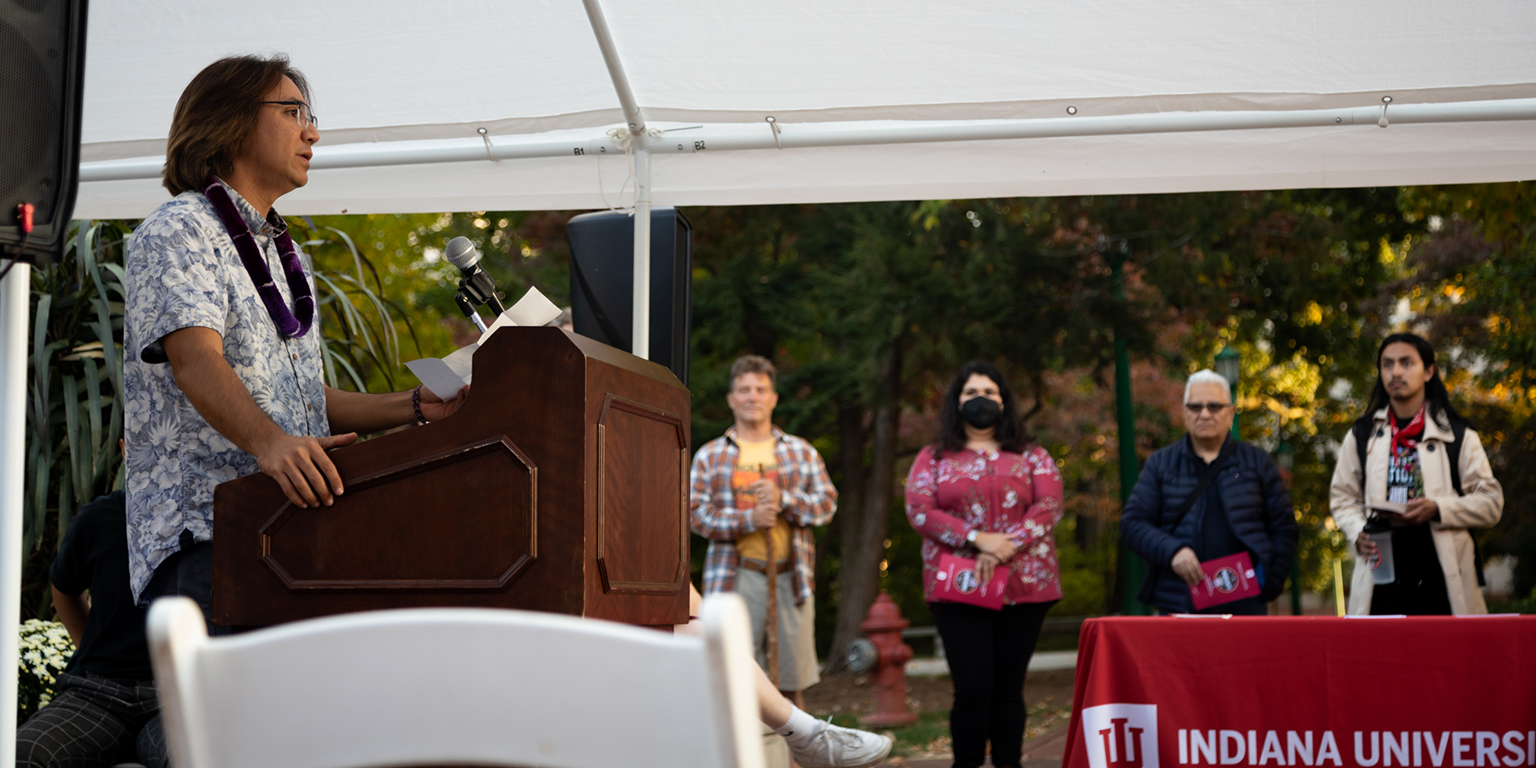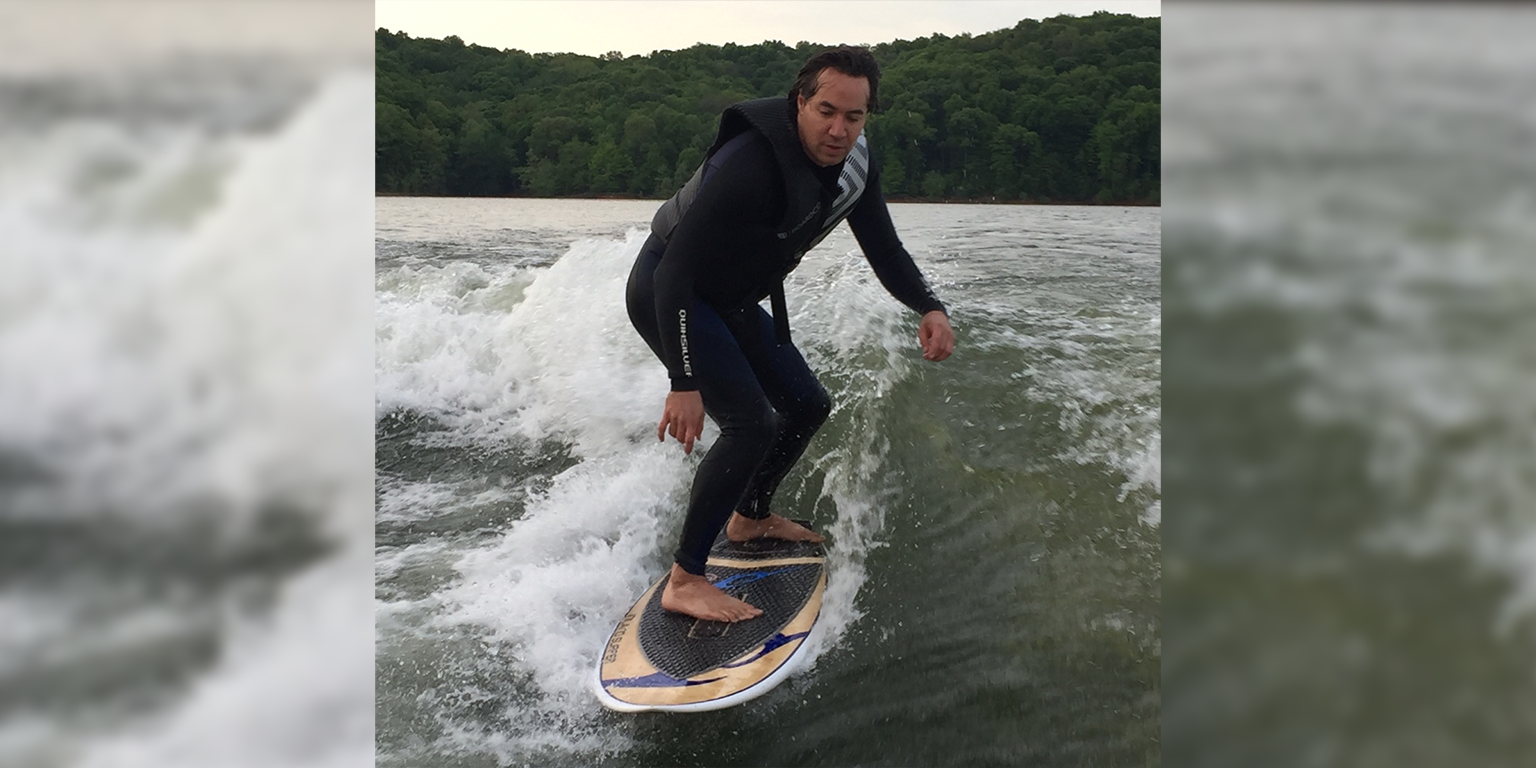Recently, Michael completed a translation of an early Chinese text, the Da Dai Liji (co-translated with Naiyi Hsu), and he is working on a monograph on grief and resilience in the work of Tao Yuanming (c. 365 - 427), a fifth-century Chinese poet and intellectual.
His previous roles at IU included terms as director of undergraduate studies in the Department of Religious Studies and interim director of the First Nations Educational and Cultural Center.
An Andrew W. Mellon New Directions Fellowship in 2020 enabled Michael to begin work on Native Hawaiian thought, and he has published two books with Oxford: “The Dysfunction of Ritual in Early Confucianism” (2012) and “The Vulnerability of Integrity in Early Confucian Thought” (2017). He has been a visiting scholar at National Taiwan University, an early career scholar with the University of Chicago’s Enhancing Life Project, and a fellow at IU’s Institute for Advanced Study.
Michael earned a Master of Theological Studies from the Harvard University Divinity School and a Ph.D. in Harvard’s Department of East Asian Languages and Civilizations.
Q: What led you to Indiana University – and what do you appreciate most about being a faculty member here?
A: IU has one of the best Religious Studies departments in the academy. It also has a long history of faculty studying Chinese religions. I’m fortunate to carry on this tradition with multiple colleagues who work in this area, including Aaron Stalnaker, Alexus McLeod, and Nick Vogt (in the East Asian department). I don’t think it’s an exaggeration to say that we have the top program (outside of Asia) in Chinese philosophy.
Q: Your current book is a translation of the Da Dai Liji, a text edited in the first century BCE, which purports to contain the teachings of Confucius and his disciples (and other important figures in early China) on such topics as government, ritual, and society. What led you to this project, and how can its contents help instruct us today?
A: This project is, in part, a result of circumstance. My co-translator, Naiyi Hsu, was my PhD student, and one year, we were looking for ways to stay in contact while I was on research leave. We were originally aiming at a project that would only last a year, but it expanded into a three-year project. Currently, we are working on translating another early Confucian text.
As far as the value of the text is concerned, the teachings of Confucius have likely shaped the lives of more people than any other person’s teachings. Confucianism is not only a part of Chinese culture, which extends throughout the world, but also part of Korean, Japanese, and Vietnamese culture. The Da Dai Liji is one of the few texts that purport to contain the teachings of Confucius that have not been translated into English. Having access to this text helps others (us?) to have a bigger picture of world history and is one additional approach to how human beings have organized societies and conceived of what it means to be human.
Q: Your new research on Kanaka Hawaiʻi (Native Hawaiians) focuses on what it means to be human. Can you share some examples of what you’re discovering in the early stages?
A: Much of this work is motived by the Lāhui, or Native Hawaiian community. Approximately half of Kanaka Hawaiʻi live outside the islands of Hawaiʻi (including myself), yet this group of Kanaka are not usually seen as a significant part of the Lāhui. Part of what I am doing is rethinking Kanaka identity in light of so many Kanaka living off island by exploring traditional narratives that stress the ways in which Kanaka are not only rooted to the islands of Hawaiʻi, but also routed to exploring the wider world.
Q: What is something you wish people knew about your body of research?
A: That Indigenous cultures are alive and well (although we’ve seen better days). Settler colonialism seeks to mute and erase the cultures it colonizes. With upwards of 90% of Indigenous peoples dying after European contact, many people hypothesized the complete disappearance of Indigenous peoples (in part to support colonial narratives). I have heard more than one person in Indiana express surprise that any Native Americans remain. My work aims to show how robust the intellectual traditions of Indigenous peoples have been and are.
Q: What books/podcasts/articles/media have inspired you lately that you’d recommend?
A: On the popular side, I would recommend An Indigenous Peoples’ History of the United States by Roxanne Dunbar-Ortiz. On the academic side, I would recommend David A. Chang’s The World and All the Things upon It: Native Hawaiian Geographies of Exploration.





